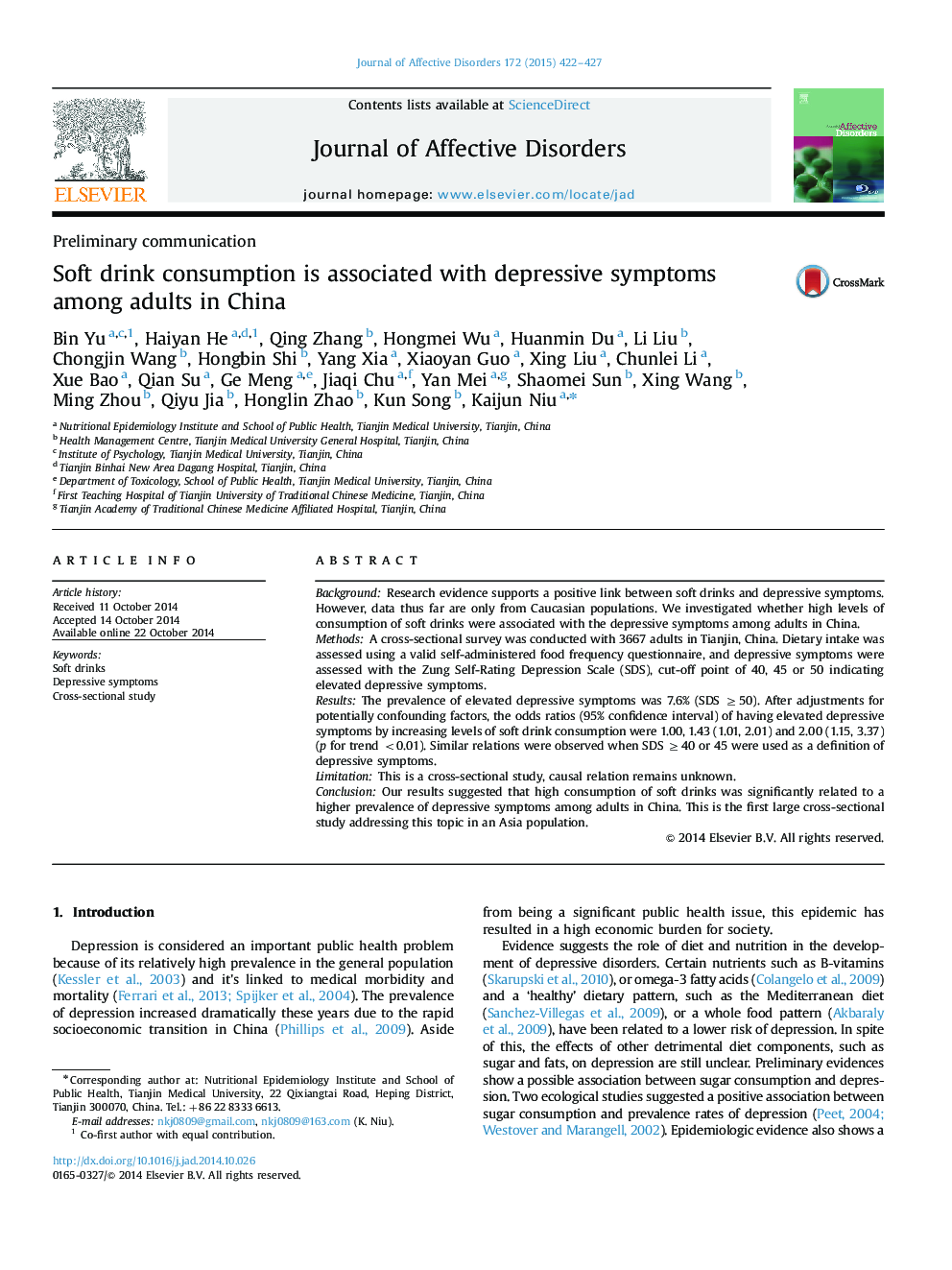| Article ID | Journal | Published Year | Pages | File Type |
|---|---|---|---|---|
| 6232344 | Journal of Affective Disorders | 2015 | 6 Pages |
BackgroundResearch evidence supports a positive link between soft drinks and depressive symptoms. However, data thus far are only from Caucasian populations. We investigated whether high levels of consumption of soft drinks were associated with the depressive symptoms among adults in China.MethodsA cross-sectional survey was conducted with 3667 adults in Tianjin, China. Dietary intake was assessed using a valid self-administered food frequency questionnaire, and depressive symptoms were assessed with the Zung Self-Rating Depression Scale (SDS), cut-off point of 40, 45 or 50 indicating elevated depressive symptoms.ResultsThe prevalence of elevated depressive symptoms was 7.6% (SDS â¥50). After adjustments for potentially confounding factors, the odds ratios (95% confidence interval) of having elevated depressive symptoms by increasing levels of soft drink consumption were 1.00, 1.43 (1.01, 2.01) and 2.00 (1.15, 3.37) (p for trend <0.01). Similar relations were observed when SDS â¥40 or 45 were used as a definition of depressive symptoms.LimitationThis is a cross-sectional study, causal relation remains unknown.ConclusionOur results suggested that high consumption of soft drinks was significantly related to a higher prevalence of depressive symptoms among adults in China. This is the first large cross-sectional study addressing this topic in an Asia population.
